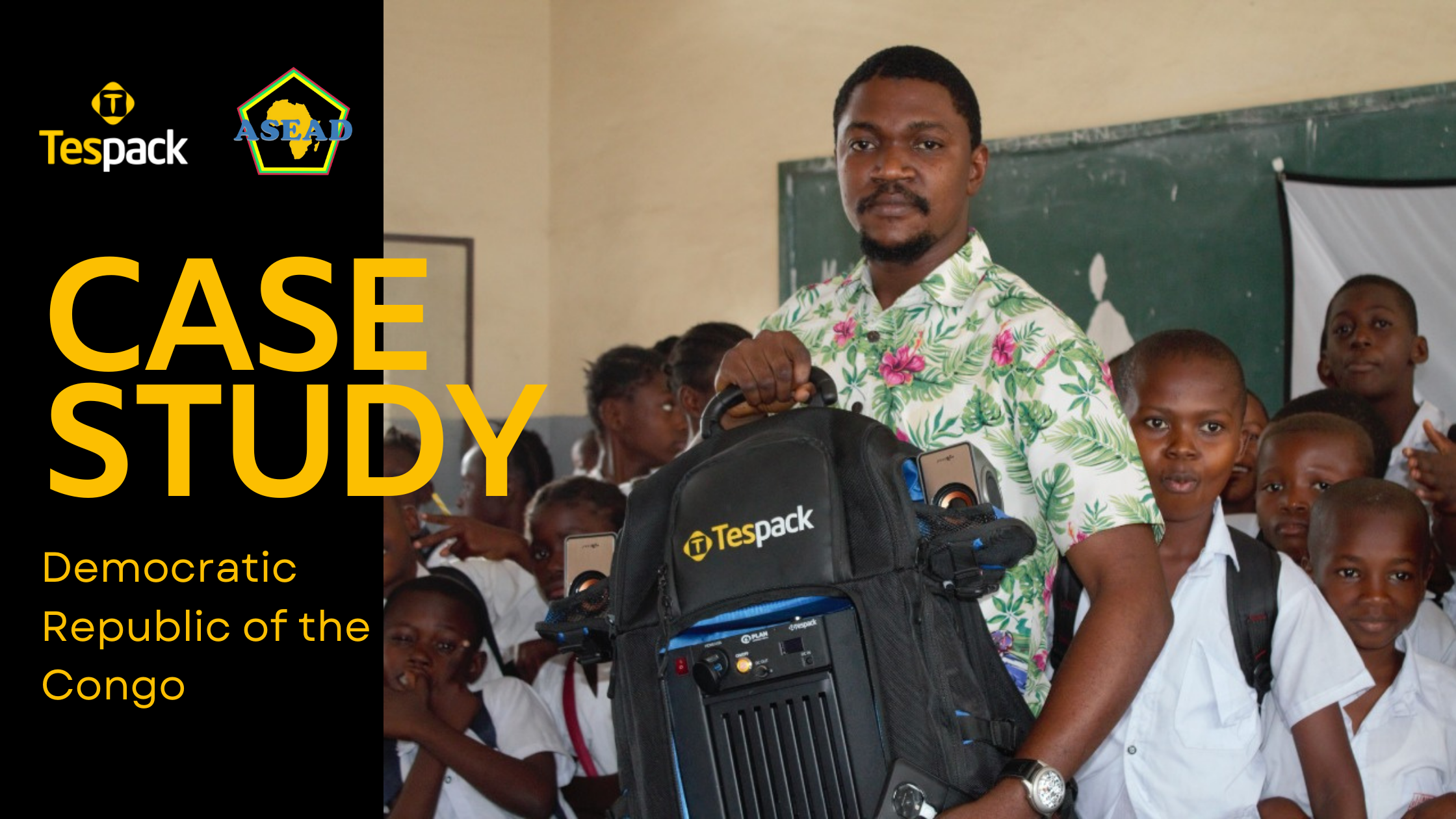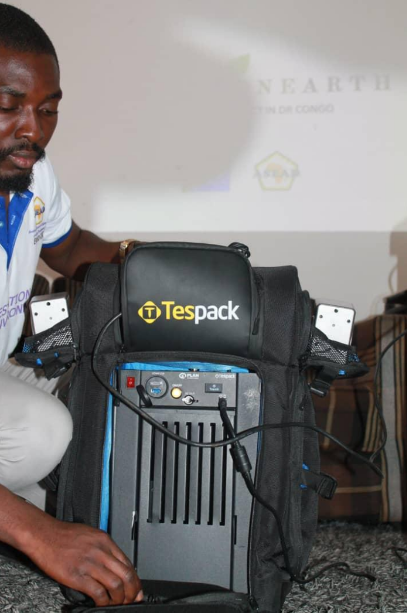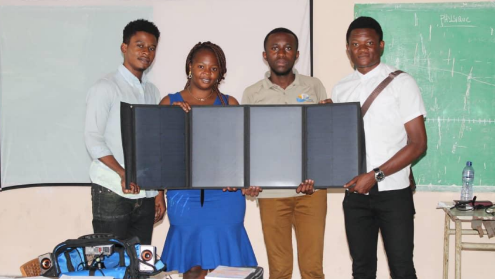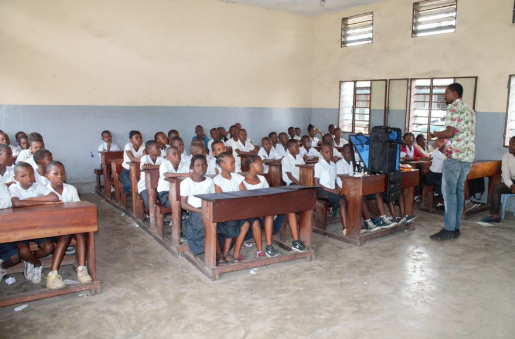
Academy of Sciences and Engineering for Africa Development
Academy of Sciences and Engineering for Africa Development (ASEAD)
Bringing Access to Digital Education & Solar Energy to DR Congo
For the past year, since mid 2022, Academy of Sciences and Engineering for Africa Development (ASEAD) has been utilising Tespack’s Smart Solar Media (SSM) system as part of their educational activities in the rural regions of DR Congo. ASEAD is a locally based non-profit organization focused on supporting the local population, especially the children and youth, in the pursuit of their scientific and entrepreneurial career development while focusing on sustainable development and activities around this that can further support the local communities.
ECO-School Project – Turning Rural Schools into Smart Digital Schools
During 2022, ASEAD carried out a project focused on improving the self-sustainability and livelihoods of children in rural areas of the DRC, in Maluku region. Due to lack of infrastructure and access to energy, lessons were often carried out under trees which meant that in case there would be rain, lessons would be canceled. With limited resources, students would rely on the teachers creativity in carrying out the lessons.
During this ECO-School project, ASEAD focused on building a lower cost school which would combine access to energy through the utlisation of solar panels while also incorporating audiovisual technology for enhancing the learning experience for the students and supporting teachers in accessing new type of materials. Thanks to this project, local schools and communities in the Maluku region, got access to energy and new educational content through the usage of projects and speakers as part of the lessons being conducted by the teachers.
The locals were taught about how to become self-sustainable and how they can utilise solar energy thanks to the SSM system.
Due to climate changes, the region has witnessed many changes in the seasons which have impacted on the crop production for the local farmers but also has caused serious deforestation in the region. For this reason, ASEAD has also carried out projects supporting the sustainable development of the region through tree planting.

Easy to Use, Works Well, Great Technical Features – How the SSM System Was Performing
After using the SSM system for over 2 months in the DRC, ASEAD conducted a survey with the users of the SSM system and collected their feedback. The feedback was based on the usage of the SSM system in different sectors such as education, agriculture, mining and research and the overall feedback was close to 100% positive feedback.
Main focus of the survey was to understand better how the SSM system performed in different projects, how easy it was to use and would it require any technical understanding, while also emphasis was placed on the overall technical features and performance of the system in rural regions. The key findings were:
- Technical features of the SSM system were great with 90% of satisfaction rate from the users (i.e operational capacity of the system, solar charging features, access to digital content)
- The system performed perfectly with 100% satisfaction rate – easy to use, no technical skills needed
- Weight of the system could have been slightly decreased with 70% of the users being satisfied and happy with the overall weight.
- The usage of technology and different technological advancements around power electronics, solar, audiovisual and battery management system were a 100% satisfaction rate from all of the users.
ASEAD believes strongly that the usage of the SSM system in the rural parts of the DRC can greatly narrow the widening digital gap between the urban and rural regions while supporting with the overall human capital development as more locals will benefit from accessing digital educational content.

Achieved Benefits
ASEAD was able to carry out digital lessons in rural regions, in turning classrooms into digital classrooms while enhancing the learning experience of the students by showcasing audiovisual content as part of the lessons. Due to lack of infrastructure and access to energy, the SSM system provided the needed energy source for powering mobile devices and supported with overall better access to green energy in the rural areas. Thanks to the portability of the system, teachers and other users were able to move easily from school to school.
For more information about the Smart Solar Media system and how it can support the work of organisations in remote locations, please visit our Featured Solutions page.
If you wish to start a partnership with Tespack or would like to get more information, please write to us at info@tespack.com

